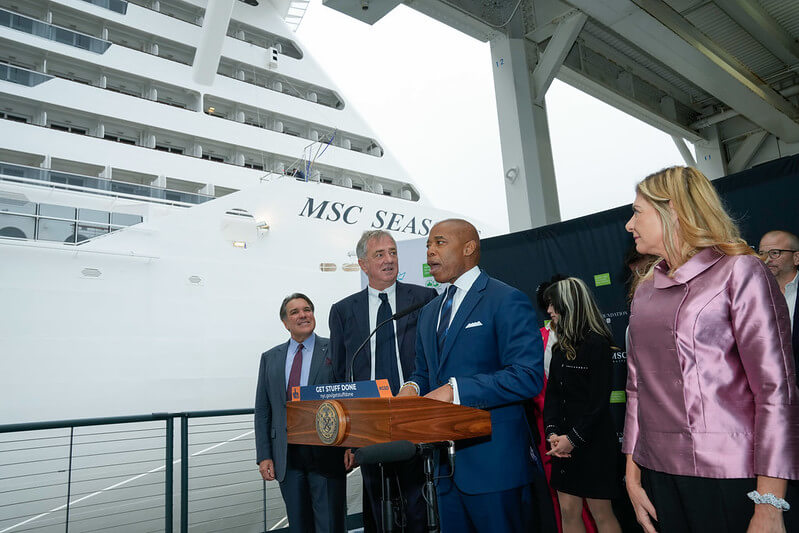Fossil fuel-emitting cruise ships would have to walk the plank and abandon New York City ports unless they plug into clean shore power for energy, should a bill in the City Council become law.
Intro. 4 of 2024, sponsored by Democratic City Council Members Alexa Avilés of Brooklyn and Erik Bottcher of Manhattan, would condition access to the city’s two cruise ports — located in the sponsors’ districts in Red Hook and Hell’s Kitchen — exclusively to operators that both connect to the electric grid instead of burning fossil fuels for power when in berth and create plans to mitigate traffic associated with cruise departures.
Over 1.3 million passengers embarked on cruises out of the Manhattan and Brooklyn terminals last year, bringing in about $420 million in economic activity to the city, according to the Economic Development Corporation (EDC), the quasi-public agency that oversees the city’s cruise terminals and ferry landings.
But especially in Red Hook, locals say they are not feeling the benefits, only the downsides. When cruise ships berth in a harbor and don’t connect to shore power, they idle to retain power — burning diesel fuel in the process.
Due to their immense size, just one cruise ship idling in port emits as much carbon into the atmosphere as over 34,000 heavy-duty trucks, the bill’s sponsors say, plus large amounts of noxious sulfur dioxide.
What’s more, cruise ships also draw large amounts of traffic from both trucks supplying food, booze, and other goods aimed at creating a fantasy vacation for guests. Many oceangoers also arrive at the terminal by car, creating a traffic nightmare in Red Hook each time a ship is in dock.
Partially as a result of the cruises, both Council Districts 3 and 38, where the terminals are located, have above-average levels of air pollution compared to the city overall, according to Spatial Equity NYC. That’s particularly felt in Red Hook, where some residents see cruises as purely…
Read the full article here








